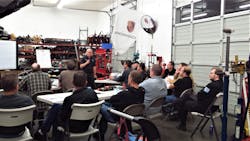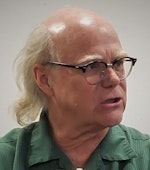This MTD exclusive was provided by Craig Van Batenburg, MTD's monthly EV Intelligence columnist and owner of Van Batenburg's Garage Inc. dba Automotive Career Development Center, which provides training for facilities that service - or want to service - electric and hybrid vehicles.
When did you first encounter a hybrid owner asking about tires? It could have been the year 2000.
If it was, you had a Honda Insight gas/electric hybrid (HEV) in your parking lot and a customer that most likely knew a lot more about the first hybrid sold in America than your service writer did.
It may have been a car you did not even know existed!
A few years later in 2004, a Prius owner might have stopped by your store, in need of a tire rotation. No big deal, right? What if your service advisor discovered that the Prius’ owner had parked in front of your dealership’s garage door and did not know how to start the car? Then it was probably “ask-the-car-owner” time, which can be a bit embarrassing.
The good news is that was a long time ago. Now hybrids are mainstream and electric vehicle (EV) sales are surging.
The owners of these vehicles have money as many EVs aren’t cheap. They love their cars, need tires and expect great service.
Second-hand EV buyers are another type of customer. They typically have less money and are not as savvy about EV technology. It’s now up to you to help them. And that requires some hand-holding.
Professional hand-holders are clergy, lawyers, therapists and others. Other than ministers, rabbis and other religious leaders, most typically get paid for their time.
When I owned and operated Van Batenburg’s Garage in my hometown of Worcester, Mass., on my business card - after my name - were the acronyms CMAT, L1, L3, AMAM and DMM.
The last one displayed a bit of my humor as it stood for “doctor of moving metal”. You see, the shop - which is now my HEV/EV training center - was two blocks away from a large hospital and over 50% of my customers were in the medical world.
And it became clear to me as I gained experience growing my business that I needed to learn better listening skills. The more I listened to my customers, the more they trusted me.
If I asked questions after listening, the better the outcome of the sale.
Who is responsible for the success of any communication - the listener or the speaker? What do you think? Stop reading for a moment and ponder that question. Pose the question I just asked to the people you work with. Many will say, “Both.” (We will get back to that at the end of this column. By the way, if you ever notice something that can wait to be discussed later, make a note of it. Become a note taker!)
I also urge you to have a culture of open meetings at your dealership. At my old company, we were able to have meetings after lunch without interruptions. (We were closed for one hour at lunchtime.)
We took this hour-long break to talk with one another and learn. It was amazing to see the growth in sales and efficiency in the shop. You can also use your shop’s downtime time to learn about EVs and the EV owners’ views.
But back to the subject of hand-holding.
Each new technology comes with a learning curve. Owners of second-hand HEV and EVs will need help understanding why certain tires are made specifically for a 2011 Nissan Leaf or a 2014 BMW i3.
EVs have been here for over 10 years and hybrid cars well over 20 years. How do you get paid for that extra hand-holding time? Can that time spent be included in the final bill somewhere?
In most stores, customer service people may not know very much about EVs or much worse, they make stuff up as they go along.
Maybe their response to a new customer is a negative comment about the idea of banning fossil-fuel vehicles? Will that culture at your store be helpful in the long run?
Going back to what I asked earlier - just who is responsible for the success of any communication? The listener or the speaker? My belief is that it’s the listener 100% of the time. Listening is hard work.
Many times, when you start to listen to something you do not agree with, you stop listening or you prepare to engage in an argument. This is not helpful. That is one reason why listening is hard.
There is a phrase - “Always already listening” - that I learned when I attended a class in the early-1990s.
This EV thing is going to challenge all of us in some way. We must learn and move into this new age or fall behind and lose our way. You have worked too hard to let your sales slide.





